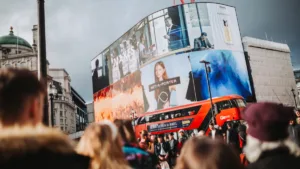Over two-thirds (68%) of retail marketers have lost control of social media ad spend, according to new research by product performance management (PPM) platform ROI Hunter.
“Algorithms like Meta’s are focused on matching audiences rather than products, and they don’t have access to all the data that retailers have like margin and stock levels. If retailers rely solely on the social algorithms to pick which products are promoted, they risk their spend being wasted on items that are not aligned with their objectives, e.g. profitability,” said Karel Schindler, CEO at ROI Hunter.
Despite headaches over social spend, 67% of the marketing force across UK retail claim they already have full visibility and control over how marketing budget is allocated across their entire inventory. Clearly, this is not the case, and retail marketers who don’t take action over their social strategies will fail to understand and react to changing consumer behaviours, while missing KPIs aligned to profitability.
Retail marketers are facing heightened urgency to gain this control, as 72% expect to increase the budget for social media spend in the next year. Consumer habits are most likely to be driving this rise, as 3 in 5 (59%) have made a retail purchase through a social media platform in the past year with Facebook (27%) and Instagram (19%) the most popular. Only 14% of consumers admitted they don’t use social media, highlighting a huge advertising opportunity for retailers across social for the 86% that do.
Changing consumer habits, including the rising trend of social media shoppers, is why seven-in-ten (69%) retail marketers are now more focused on promotional strategies across these platforms. In addition, 65% of retail marketers have recognised the need to achieve visibility over where spend is allocated and already have set KPIs against sales through social media apps.
Unsurprisingly, the main platforms which retailers are focused on for driving sales are Instagram (57%) and Facebook (51%). With integrated features such as Facebook Marketplace becoming an increasingly attractive option for consumers, retailers need to be wary of second-hand site competition.
Amidst the cost-of-living squeeze, in the last year, 44% of shoppers have turned to second-hand marketplaces to make a purchase. A further 42% revealed they are also spending more time bargain hunting online than they used to.
“Retail marketers can achieve their promotional goals by incorporating product performance data into their strategies. With this information, they can segment their products into product sets/groups aligned with their objectives. This enables the algorithms of social media platforms to promote the right products by pulling from these groups, thereby boosting their bottom line in social selling,” said Schindler.









